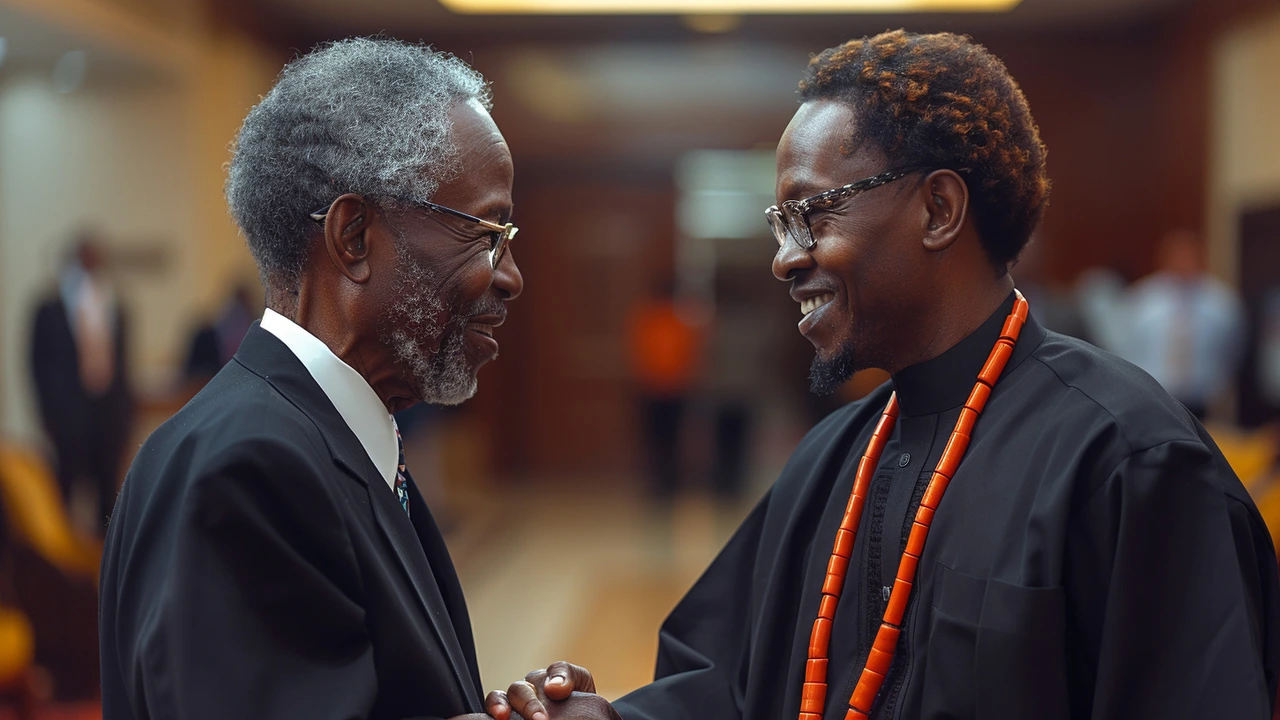
Atiku Abubakar's Potential Support for Peter Obi in 2027
In a surprising but strategic political move, Atiku Abubakar, the Peoples Democratic Party's (PDP) presidential candidate for the 2023 election, has declared his readiness to support Peter Obi for the 2027 presidential race if the party decides to nominate Obi. During a recent interview with the BBC Hausa Service, Atiku made it clear that he is fully committed to the party's decision-making process and will back whoever the party chooses, even if that person happens to be Peter Obi, the Labour Party's candidate for 2023.
This declaration has stirred considerable interest and speculation within political circles, given the recent history and dynamic interactions between Atiku and Obi. Notably, Atiku's willingness to support Obi suggests a possible thawing in relations and perhaps an emerging strategic alliance between the two prominent political figures.
Background and Context
Peter Obi, who served as the governor of Anambra State, was a key figure in the PDP before he left the party to pursue his presidential ambitions under the Labour Party. He emerged as the Labour Party's candidate in the 2023 elections, where he campaigned vigorously but ultimately did not secure the presidency. Interestingly, both Atiku and Obi shared a common goal of unseating the incumbent administration led by the All Progressives Congress (APC) and its candidate Bola Tinubu, who eventually won the election.
Despite their shared objectives, the votes of Atiku and Obi, if combined, might have been sufficient to win against Tinubu. This hypothetical scenario is not lost on political analysts who believe that a strategic alliance between the two could have altered the outcome of the 2023 elections. Now, with the next election cycle in view, both politicians appear to be exploring options that could strengthen their positions and leverage their collective support bases.
Speculation About Future Alliances
The intrigue surrounding a potential Atiku-Obi alliance gained momentum following a recent meeting between the two leaders. Although details of the meeting remain sparse, the timing and nature of the discussion have led many to speculate that the duo might be considering joining forces for the 2027 general elections. Atiku has hinted at the possibility of a merger between the PDP and the Labour Party, a move that political observers say could redefine the landscape of Nigerian politics.
For Atiku, a veteran politician and a former Vice President, demonstrating loyalty to his party's decisions is paramount. His openness to support an Obi candidacy underscores his commitment to party cohesion and the broader goal of retaking the presidency. Meanwhile, Peter Obi's growing influence and popularity, particularly in the South-East region, cannot be ignored. An alliance between the two could present a formidable challenge to any rival party, including the ruling APC.
The Party's Role and Strategic Decisions
Ultimately, the PDP's decision will be guided by various internal and external factors, including regional sentiments, party loyalty, and the strategic imperative to present a united front. If the PDP decides to zone the presidential ticket to the South-East—a region clamoring for more significant political representation—Peter Obi could indeed become the preferred candidate.
A merger or coalition with the Labour Party would also necessitate intricate negotiations and a clear alignment of political agendas. Both parties would need to agree on a common platform and strategy to present a cohesive and compelling alternative to the Nigerian electorate. Such a move would require substantial political will and compromise from all involved parties.
Political Analysts Weigh In
Political analysts have varied perspectives on the feasibility and potential impact of an Atiku-Obi coalition. Some argue that the alliance could inject much-needed dynamism and fresh perspectives into Nigerian politics, while others caution against the potential pitfalls of merging diverse political ideologies and ambitions. Nevertheless, the prospect of a united front poses a significant challenge to the ruling APC and any other contending parties.
The upcoming months and years will be critical in shaping the political landscape ahead of the 2027 elections. As Atiku and Obi continue their political engagements and strategize for the future, their actions will be closely watched by supporters, opponents, and political analysts alike. The possibility of an alliance, though not yet certain, offers a tantalizing glimpse into the evolving dynamics of Nigerian politics.
In conclusion, Atiku Abubakar's readiness to support Peter Obi in the 2027 presidential race represents a noteworthy development with far-reaching implications. Whether this potential coalition will materialize and how it will reshape the political arena remains to be seen. For now, the political landscape remains fluid, marked by strategic maneuvers and alliances that could significantly influence the future direction of Nigeria's democracy.